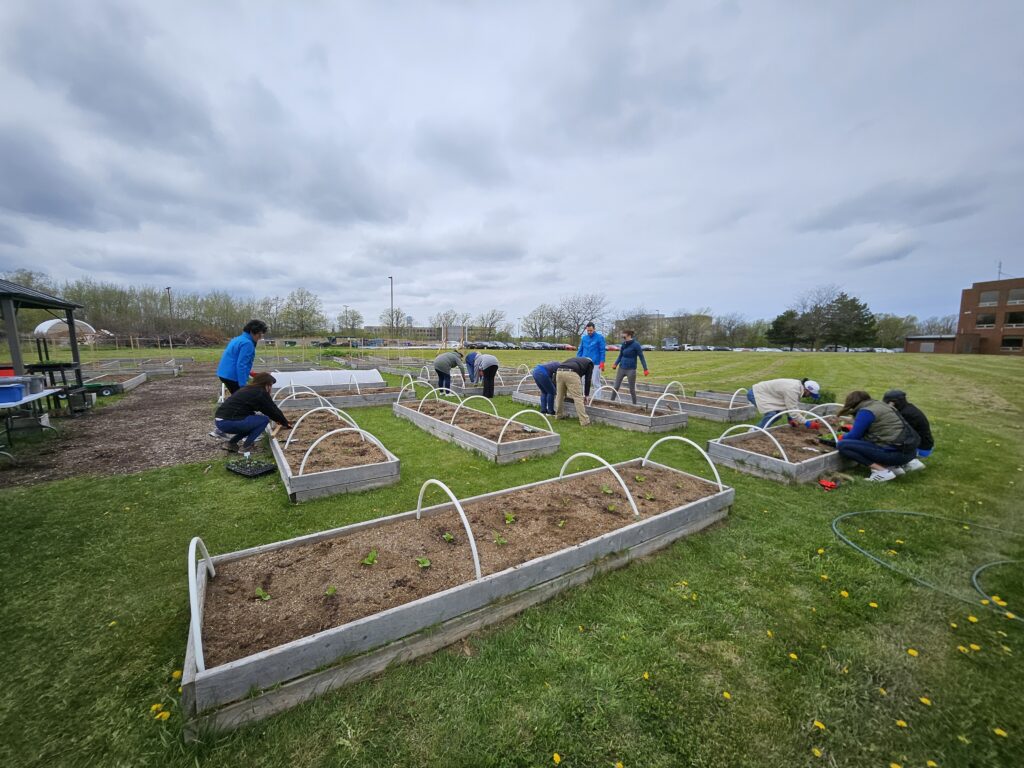July 23, 2025
Growing Community – Niagara College Garden Hub Expanding for a Greater Impact



Building a stronger Niagara starts with greater access to all of the essentials we need to live, thrive and participate in our community. Access to healthy, culturally appropriate food is one of the cornerstones of our approach to improving lives and building community right here in Niagara.
What started as a pilot project in 2021 to combat food insecurity has grown, no pun intended, into a sprawling garden hub, supporting dozens of organizations locally with fresh produce and providing enrichment for students and community members alike. Last year alone more than 10,000 pounds of healthy food was grown and distributed as part of this initiative. The food grown in this garden was able to support local fresh food markets that benefit thousands of people throughout Niagara.
Niagara College and United Way have found such great success with the project that they have decided to expand upon the existing garden space located on the Daniel J. Patterson campus, doubling the amount of garden beds and increasing the square footage of the garden. With this expansion United Way can increase food production to supply more fresh, nutritious food to those in need while also enriching student learning opportunities and supporting wellness at the Niagara-on-the-Lake campus.
Beyond just providing food, the garden provides learning opportunities with hands-on programming that allows students and community members to improve their skills and knowledge in gardening and food production. There are also additional benefits for students that come from having direct access to fresh healthy food on campus, as 2 in 5 students in Ontario are dealing with some form of food insecurity themselves.

Why is this important?
- 1 in 5 households in Niagara are food insecure.
- Roughly 80 percent of families dealing with food insecurity have incomes above the poverty line.
- Close to 20 percent of children and youth in Niagara are experiencing some form of food insecurity.
Food insecurity is the lack of consistent access to enough food for an active, healthy life. It is a measure of the availability of food and a person's ability to access it. No one should have to worry about running out of food, compromise quality and quantity of food, or miss/limit food intake.
We know that food insecurity can have severe impacts on physical and mental health. The results of poor nutrition can lead to a long list of high-risk health problems and long-term chronic health conditions. The stress and anxiety linked to not having enough food or being unable to afford food can worsen existing mental health issues.
When we talk about the social safety net - it’s because the person who is dealing with food insecurity is likely still faced with other issues outside of having a healthy, nutritious meal available to them. Social safety nets are a collection of programs meant to protect people from hardship. They are meant to catch us when we fall and need support. A well-designed social safety net will assist those in need for the time it takes to dust themselves off and get back on their feet by finding employment, housing or whatever it takes to stabilize them.
The Growing Communities movement is just one way that together we can transform communities and address environmental, health and social issues. The success of the community garden at Niagara College is just one example of how we’re collaborating with local partners to innovate our approach to building community.







